Ruth knows nothing about the shape of boats but this one looks as if it has been here forever. ‘What makes you think it was a fire ship?’ she asks.
‘There are barrels inside,’ says Craig. ‘Take a look.’
‘We’d better be quick,’ says Ruth, looking out to sea at the waves coming in towards them, shockingly fast.
‘Oh, we’ve got all the time in the world,’ says Craig.
Nelson is still staring out of the window when Stella comes back into the room.
‘How is she?’ he asks.
‘As well as can be expected. Peaceful.’ That note of resignation again. It casts a shadow on the bright afternoon, a shadow reflected on Stella’s face as she joins Nelson by the window.
All that is left of the garden at Sea’s End House is a thin strip of land, about a metre across, that runs alongside the house. The back garden has disappeared completely. But someone has taken trouble with the tiny piece of ground that is left. There is a narrow ribbon of lawn and someone has been tending the flowerbeds.
‘Strange to see the flowers coming up again after the snow,’ says Stella. ‘They’re hardier than you think, spring flowers.’
‘Are you a keen gardener?’ asks Nelson. He isn’t, though he quite likes mowing the lawn. Michelle loves garden centres; they’re her idea of heaven.
‘No, but we have someone who comes in. There’s not really enough for him to do now but he’s always looked after our garden. And his grandfather before him.’
Something stirs in Nelson’s brain as he looks at the spindly tulips pushing up out of the chalky soil.
‘Wasn’t he in the Home Guard? Your old gardener?’
‘Yes, Donald Drummond. He was devoted to Buster. And to Irene.’
As clear as if it is being amplified into the air around him, Nelson’s hears Hugh Anselm’s voice: Donald said they were only filthy Jerries and would do the same to us . Donald Drummond, the gardener.
And, like a kaleidoscope spinning before his eyes, so fast that the colours are blurred and the shapes indistinct, Nelson sees himself looking down from Archie Whitcliffe’s window. He is watching the gardener mow the lawn. Then, he sees himself at Hugh Anselm’s sheltered accommodation, admiring the grounds, so beautifully kept, recently mown, newly planted.
‘What’s the name of the gardener you have now? Donald’s grandson?’ he asks, so sharply that Stella steps back.
‘Craig. I assumed you’d know him. He’s an archaeologist too. One of Ruth’s team.’
The hull of the ship is so weathered and encrusted that it seems part of the rocks around it. Peering inside, Ruth sees pools of stagnant water, mussels like obscene growths clinging to the wood, a crab scuttling warily across the remains of a bench seat. But the basic structure remains, there is even a rudimentary cabin with the door bolted shut and, in the lowest part of the ship, partly submerged, two sealed barrels. Ruth leans forward and pulls at something trapped under one of the barrels. It looks like cotton wool, stained and discoloured by the water but smelling unmistakably of sulphur – gun cotton.
She looks at Craig who is peering over the side of the boat.
‘How come no-one’s found this before? It’s quite visible at low tide.’
‘Oh, people know about it. It’s even on the maps. I just don’t think that anyone has made the fire ship connection.’
It’s possible the boat was already a wreck when Hastings and his men primed it, thinks Ruth. It has probably sat in this lonely bay for years. Hastings would have known about it, she is sure that he knew every inch of this coast. He would have come down here in Syd Austin’s boat, probably with Ernst, the clever scientist, and filled the rotting hull with barrels of explosives, stuffed with the lethal cotton. They may even have had a way of setting off the explosion from a distance. The impact would have set the very sea on fire.
‘I wonder what’s in the cabin,’ she says. ‘It’s still locked.’
‘Let me have a look,’ says Craig, climbing over the side of the boat.
‘Funny,’ says Ruth. ‘The lock looks new. It’s not rusted at all.’
‘That’s odd.’ Craig comes to stand beside her. Even though the boat is lodged tight in the rocks, it still tilts slightly with the two of them aboard. The timbers creak and Ruth wonders if they will hold out.
The bolt slides back easily, too easily. Ruth feels the first, slight, frisson of alarm. She hears the sea thundering towards them and the gulls overhead. The tide has turned.
‘Have a look inside,’ says Craig.
Ruth turns, suddenly scared. It is a few seconds before she realises that she is looking down the barrel of a gun.
Nelson is ringing Ruth’s number. No answer. Leaving Stella looking bemused, he runs out of the house, sprints to the end of the drive and along the cliff path. Ruth’s car is in the car park. There is only one other car, a blue Nissan.
Nelson goes to the rail and looks down at the sea. The tide is coming in, crested waves rolling in towards land, smashing against the remains of the Victorian sea wall. There is no-one on the beach. At the spot where the bodies were found, police tape still flutters in the breeze. He looks at his watch. Five o’clock. A blameless time of day. Michelle will be cutting someone’s hair, chatting about holidays. Rebecca will be home from school, eating toast and talking to her mysterious on-line friends. Clough will be asking who’s going to the pub after work. Judy will be ignoring him. And Ruth? Ruth should be picking Katie up from the childminder. Instead, her car’s here and she’s nowhere to be seen. What had she said? Craig, one of the field team, rang to say that they’d found a boat on the beach just beyond Broughton.
He walks back to Sea’s End House and takes the sloping path down to the beach. The same route taken by Captain Hastings and his men that moonless night. But this is a bright, spring afternoon. Surely Ruth cannot be in danger? He looks up at the house, the Thirties gothic folly, its sombre grey walls rising up out of the cliff. Inside that house, a woman is ill, perhaps dying. He remembers the shadow that he saw on Stella Hastings’ face and shivers.
I am going to swim out beyond Sea’s End Point. I am going to swim and swim until I can swim no more and then I am going to let the sea take me.
Danny West had swum to his death from this beach. Dieter Eckhart had been killed and his body thrown onto the rocks. Six murdered men were buried in the gap between the cliffs. Hugh Anselm had apparently thought that the beach at Broughton had an unwholesome atmosphere. Hardly surprising, given what he had witnessed there, but Nelson himself had felt something of the sort – though he could hardly have put it into words – the first time that he looked down at the narrow bay, with the cliffs on one side and the tall grey house on the other. This place has known death before.
He walks to the point of the headland and looks out across the next cove. Deserted. This was the place where they found the barrels, he remembers. The cliffs are higher here, streaked yellow and grey. The beach beyond Broughton , Ruth said. He rings her number again. No answer. He tries her home and gets the answer phone. He doesn’t know who he expects to answer anyway. The cat? Next he rings Judy, she’s best at the local stuff.
‘Judy? What’s the next beach beyond Broughton?’
‘Going north or south?’ At least Judy never asks unnecessary questions.
‘North.’
‘Rockham. Beyond that, it’s Cromer.’
‘Can you get down to the beach from there?’
‘Yes. There are some steps.’
‘Can you meet me there as soon as possible? Bring Cloughie too.’
Читать дальше
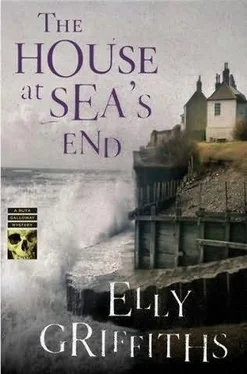

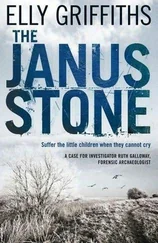
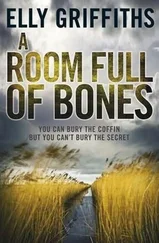

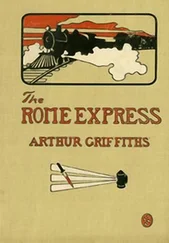


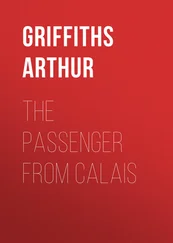



![Edward Ellis - Adrift on the Pacific - A Boys [sic] Story of the Sea and its Perils](/books/753342/edward-ellis-adrift-on-the-pacific-a-boys-sic-s-thumb.webp)